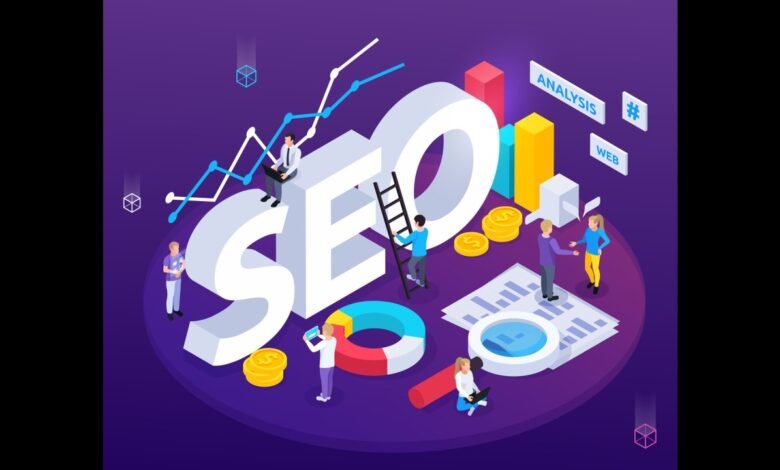Ethical SEO: Why Integrity Matters in Search Engine Optimization

When people hear the term “SEO,” their minds often jump to keywords, rankings, and algorithms. But there’s another side to SEO that doesn’t get enough attention: ethics.
In a competitive digital world, it’s easy to be tempted by quick wins — shortcuts that promise rapid traffic or top rankings. Yet, long-term success in search engine optimization comes from doing things the right way. Ethical SEO, also known as “white hat SEO,” isn’t just about following guidelines. It’s about building a brand that users — and search engines — can trust.
Let’s explore what ethical SEO looks like, why it matters, and how the right strategy can create lasting value for any website.
Understanding Ethical SEO
Ethical SEO is the practice of optimizing a website using methods that align with search engine guidelines — especially those set by Google. It focuses on real user value, transparency, and sustainability.
Here’s what it typically includes:
- Creating high-quality, relevant content
- Earning links organically
- Ensuring website accessibility and usability
- Avoiding manipulative tactics like keyword stuffing or cloaking
In contrast, unethical or “black hat” SEO may involve hidden links, fake backlinks, copied content, or misleading redirects — all of which may work briefly but can ultimately result in penalties or de-indexing.
Why Ethical SEO Is a Long-Term Strategy
While unethical techniques may offer quick gains, they rarely last. Search engines are constantly updating their algorithms to identify manipulative behavior.
Ethical SEO might take more time and effort, but it pays off in several ways:
- Sustainable Rankings: Sites built on trust and relevance don’t just rank — they stay ranked.
- Higher User Trust: Honest practices foster better engagement, return visits, and conversions.
- Risk Avoidance: Avoiding penalties protects your site’s long-term viability.
By working with a transparent and experienced SEO Agency, businesses can ensure their growth is both steady and safe.
Transparency Builds Credibility
An often overlooked part of SEO is communication. Ethical SEO involves being honest — with your audience and with search engines.
That means:
- Avoiding clickbait headlines
- Being clear about your services or products
- Citing credible sources
- Using schema markup to help search engines understand your content
Users are becoming more aware of misleading content online. A site that presents itself truthfully naturally builds credibility — which is rewarded in rankings and referrals alike.
Content That Serves People, Not Algorithms
There was a time when stuffing a page with the same keyword over and over was enough to rank. Thankfully, that era is long gone.
Today, SEO content should be:
- Written for humans first
- Focused on solving problems
- Structured for easy readability
- Optimized naturally, not forcefully
Search engines now prioritize pages that offer real value. That’s why working with professionals who understand both SEO and user behavior — like a SEO Services provider — can make all the difference.
The Role of Backlinks in Ethical SEO
Backlinks remain one of the strongest ranking signals, but how you get them matters.
Unethical link-building often includes:
- Buying links from shady directories
- Using link farms
- Auto-generating backlinks
These tactics can do more harm than good. Ethical SEO emphasizes earning links by producing helpful, shareable content, building relationships, and contributing meaningfully to relevant publications.
Guest posting (just like this one) is a great example of ethical link-building — it adds value to readers and naturally connects to relevant resources.
User Experience as a Ranking Factor
SEO doesn’t stop at keywords and links. The entire user experience — from how fast a page loads to how easy it is to navigate — impacts search rankings.
Ethical SEO takes user experience seriously by:
- Ensuring mobile responsiveness
- Avoiding intrusive pop-ups
- Making pages accessible for all users
- Structuring content for clarity and flow
Google’s recent algorithm updates show just how important UX has become. Ethical strategies help you stay on the right side of these updates — without scrambling every time the algorithm shifts.
When to Walk Away From “Quick Fix” Promises
If someone promises instant SEO results, guaranteed first-page rankings, or thousands of backlinks in a week, it’s a red flag.
SEO is a marathon, not a sprint. Ethical practitioners will always tell you:
- Results take time
- Quality is more important than quantity
- Trust can’t be faked
True growth comes from patience, persistence, and following a plan that’s rooted in integrity.
Conclusion: Trust is the New Currency of SEO
Search engines are smart, and they’re getting smarter every day. What they reward most now isn’t trickery — it’s trust.
Ethical SEO is no longer optional. It’s the foundation of sustainable digital growth. Whether you’re a small business owner, a blogger, or a marketer, focusing on user value, transparency, and quality will always lead you in the right direction.
If you’re unsure where to start, consider reaching out to a professional SEO Agency that prioritizes ethical strategies and long-term success. It’s not the fastest path — but it’s the one that actually works.







